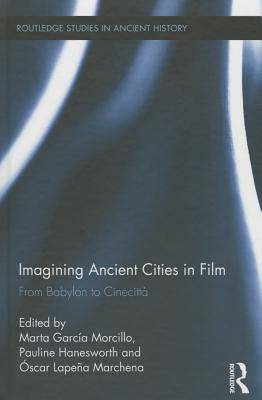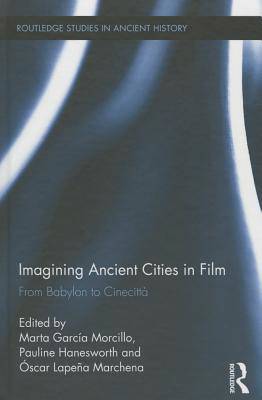
- Retrait gratuit dans votre magasin Club
- 7.000.000 titres dans notre catalogue
- Payer en toute sécurité
- Toujours un magasin près de chez vous
- Retrait gratuit dans votre magasin Club
- 7.000.0000 titres dans notre catalogue
- Payer en toute sécurité
- Toujours un magasin près de chez vous
Imagining Ancient Cities in Film
From Babylon to Cinecitta
Description
In film imagery, urban spaces show up not only as spatial settings of a story, but also as projected ideas and forms that aim to recreate and capture the spirit of cultures, societies and epochs. Some cinematic cities have even managed to transcend fiction to become part of modern collective memory. Can we imagine a futuristic city not inspired at least remotely by Fritz Lang's Metropolis? In the same way, ancient Babylon, Troy and Rome can hardly be shaped in popular imagination without conscious or subconscious references to the striking visions of Griffiths' Intolerance, Petersen's Troy and Scott's Gladiator, to mention only a few influential examples. Imagining Ancient Cities in Film explores for the first time in scholarship film representations of cities of the Ancient World from early cinema to the 21st century.
The volume analyzes the different choices made by filmmakers, art designers and screen writers to recreate ancient urban spaces as more or less convincing settings of mythical and historical events. In looking behind and beyond intended archaeological accuracy, symbolic fantasy, primitivism, exoticism and Hollywood-esque monumentality, this volume pays particular attention to the depiction of cities as faces of ancient civilizations, but also as containers of moral ideas and cultural fashions deeply rooted in the contemporary zeitgeist and in continuously revisited traditions.
Spécifications
Parties prenantes
- Editeur:
Contenu
- Nombre de pages :
- 330
- Langue:
- Anglais
- Collection :
Caractéristiques
- EAN:
- 9780415843973
- Date de parution :
- 01-11-14
- Format:
- Livre relié
- Format numérique:
- Genaaid
- Dimensions :
- 155 mm x 231 mm
- Poids :
- 598 g

Les avis
Nous publions uniquement les avis qui respectent les conditions requises. Consultez nos conditions pour les avis.





